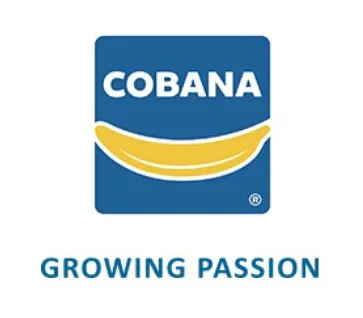Exceptional times, such as those currently being experienced, call for a thorough rethink. Jürgen Bruch, Chairman of the Supervisory Board of Cobana & Co. appealed to those present at his talk at this year's DOGK: "We have to transform ourselves into supply chain managers and think beyond the commodity." In doing so, Bruch presented both the supply chain issues within the fruit and vegetable industry and the corresponding solutions to the existing crises. "Container chaos is leading to significant price increases. There is a reason that retail speaks of an extraordinary, unprecedented and exceptional situation," said Bruch.
Jürgen Bruch at DOGK 2022
Managing multiple crises at once
"At the beginning, the war in Ukraine was assessed as a 'regional conflict' only. Given the impact of the war, we have learnt otherwise. The pandemic, in turn, caused all the businesses that were supplying the food service industry with fruit and vegetables at the time of the initial lockdown to suffer sales losses of up to 80 percent. Brexit has almost completely disrupted the logistics chains. Add to that the climate crisis and natural disasters and inflation of 8 to 10 percent," says Bruch, summarizing the current challenges.
Apart from that, the ifo Institute predicts a recession in Germany for the coming winter. "We are now not merely confronted with one problem, we have to manage several crises at once. Therefore, we have to evolve into managers of the entire supply chain. Because issues such as warehousing, shipping logistics and the truck crisis are playing an increasingly important role," says Bruch.
Electricity up 1,000 percent, gas up 2,000 percent
"If you order a new truck today, you either don't receive it until a year later or, in the worst case, you won't even be accepted as a customer anymore because the company in question can't even supply its regular customers. Electricity prices have increased by more than 1,000 percent within two years. Gas is even up 2,000 percent," says Bruch. There were 5,300 container ships worldwide, he said. In purely statistical terms, these ships were in queues more often last year than they were at sea.
Reorganization of pricing systems
To prevent delays, Bruch advocates diversifying procurement, which means, among other things, working with different procurement lines locally as well. "We also need to communicate more intensively with each other. Purchasing must deal more closely with logistics and sales. Interdisciplinarily, we need to establish much better communication, from production to the customer."
The design of pricing systems also plays an important role here, he said. "For some years now, we have seen annual prices for certain products. If you work with annual prices, while at the same time experiencing such volatile factors as diesel or energy, how can you then maintain these prices? In this regard, we have to consider whether we can't talk to customers about more flexible pricing systems. I believe that for this, we need better planning and control tools that provide us with the data on how we advertise, how we can estimate customer demand, the holidays, and so on. But for that, we need a good database first."
"We're walking into a disaster zone with our eyes wide open"
Referring to the German logistics sector, Bruch points out that there currently is a shortage of around 60,000 to 80,000 truck drivers in Germany. "The majority of those still doing this work are over 55 years old, and 20,000 truck drivers retire every year. We are walking into a disaster zone with our eyes wide open. We are not likely to get any help from the politicians. That's why we have to think for ourselves, looking to solve such issues effectively," says Bruch.
Effectively, this means that working conditions would have to be improved if truck drivers are sourced from abroad. "Good pay alone may not be enough anymore. We may also have to offer them housing and generally increase the appreciation for these employees; something that has fallen short in recent years. After all, these are the employees who are on site with our customers most often - usually six days a week."
This also means that companies need to be more involved in training. "We have to become more innovative when it comes to digitization and recruiting young people, looking for corresponding synergies. In other words, we need to cooperate with each other to get a better handle on these areas."
He said this also requires creating a good database, which is "a solid foundation" for finding solutions and exchanging relevant information. "At the end of the day, it takes the people who have the right intuition for our business and the right industry experience to be able to anticipate the situation correctly, before something horrible happens."
For more information:
Jürgen Bruch
COBANA GMBH & CO. KG
Neue Burg 2
20457 Hamburg
Tel.: 040/30 30 5 - 0
Fax: 040/30 30 5 - 197
E-Mail: info@cobana.com
Internet: www.cobana.com
